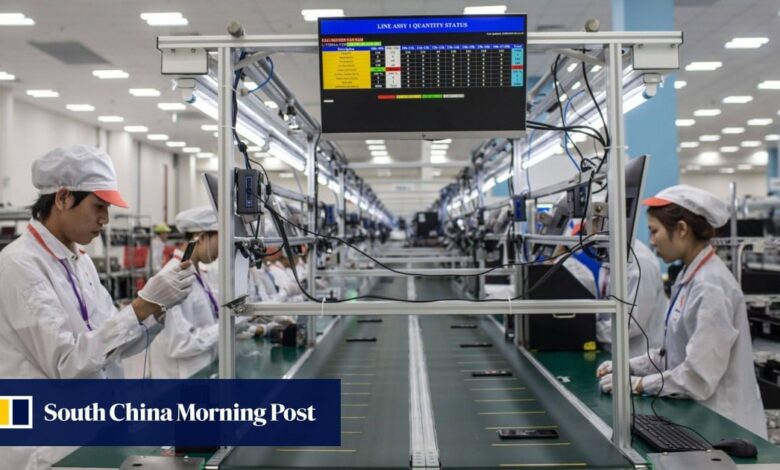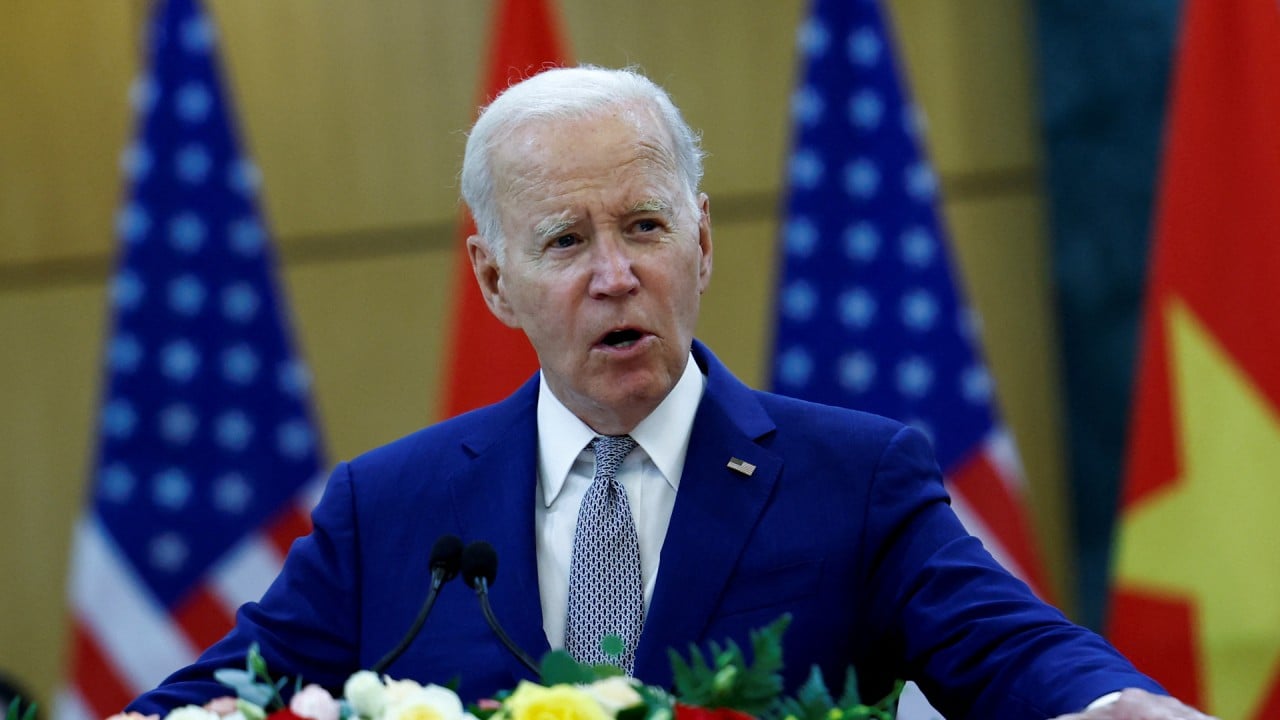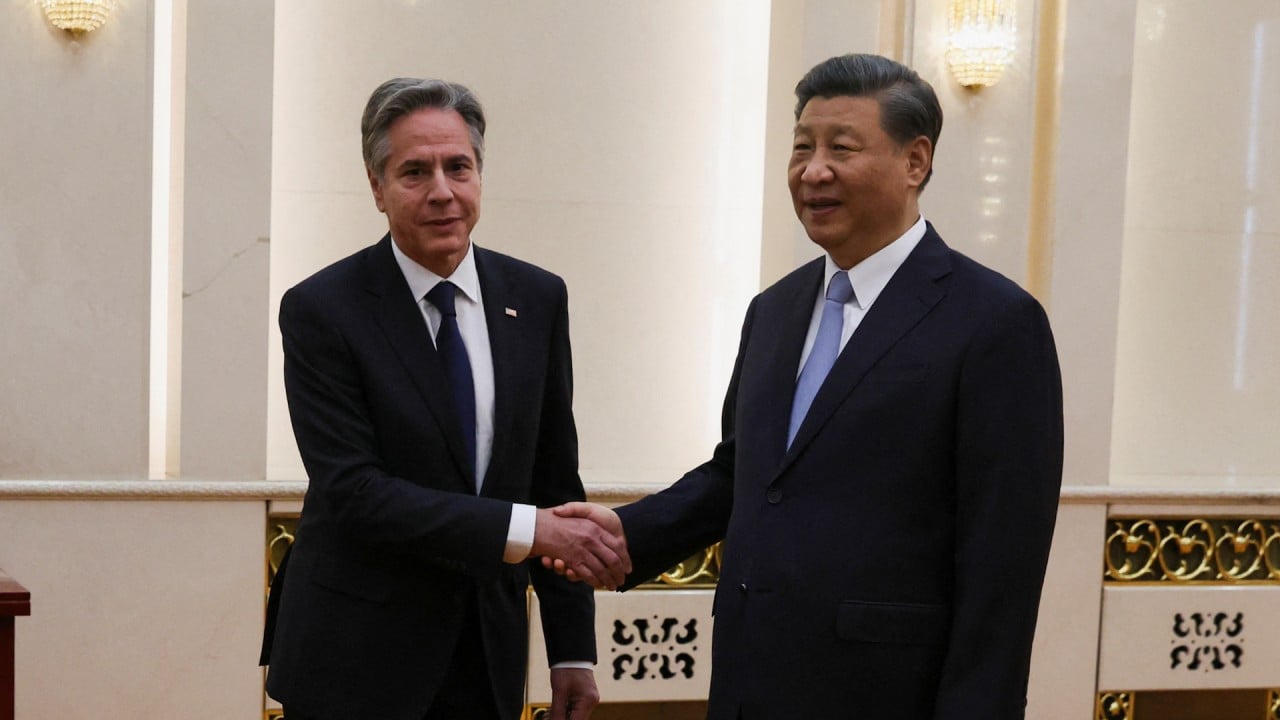How will Biden’s hi-tech pledges to Hanoi affect China’s role in Vietnam and global supply chain?

[ad_1]
While it is not likely to push China out of supply chains in the short term, many analysts warn that Beijing’s tactic of using its Southeast Asian neighbour as a re-export centre may receive further scrutiny.
Last week US Commerce Secretary Gina Raimondo further discussed with Vietnamese Prime Minister Pham Minh Chinh how to advance their comprehensive strategic partnership, including US recognition of Vietnam’s market economy status.
Alicia García-Herrero, chief Asia-Pacific economist for French investment bank Natixis, said while China was “much more present in Vietnam than the US” in terms of manufacturing companies and investment, the big question was whether Biden’s pledges and the US move into hi-tech production would “push China out of Vietnam”.
“This is very difficult, I think Vietnam will try to play both games, but I am sure the US is going to ask Vietnam to strengthen its rules of origin, meaning it is not going to be possible any more for Vietnam to export Chinese products as if they were Vietnamese instead of Chinese,” she said.
“This is a big minus for Chinese companies operating in Vietnam.”
García-Herrero said a major reason for Chinese companies to move to Vietnam would be to avoid tariffs.
Kyle Freeman, a Hanoi-based partner at business advisory firm Dezan Shira & Associates, expects to see some changes in the supply chain.
“I would expect that to continue to shift a little bit. As countries like Vietnam gain more experience in production we should expect them to move up the value chain and also take up a bigger share in the component part as well,” he said.
Why is China’s manufacturing sector increasingly drawn to Vietnam?
Why is China’s manufacturing sector increasingly drawn to Vietnam?
Freeman, who relocated from Beijing last year, said Vietnam was still well positioned to continue to gain a larger market share in these key export industries because of low costs and a young labour force.
However, he said, the country’s labour force would need workers more educated in the hi-tech areas Biden mentioned in the visit.
“Vietnam does have a shortage of engineers, so I think any US investment, especially from the administration or … at a government level, would need to relate to training in these areas as well,” he said.
Hanoi is seen as benefiting from the US-China trade war that started in 2018 when American companies switched manufacturing away from China towards alternative manufacturing hubs in Asia to avoid being hit with tariffs and caught in the intensifying geopolitical cross hairs.
Vietnam’s trade with both China and the US has been booming since then. China has for years been its top trading partner, with a total trade value of US$175.57 billion last year, followed by US$123.86 billion with the US, according to data from Vietnam’s customs agency.
Vietnam’s position of holding the world’s second-largest rare earth reserves after China – at 22 million tonnes, or half China’s reserves – had already given it an edge in attracting tech manufacturers needing the critical material for production in addition to its labour-intensive exports such as garments and electronics.
Washington-Hanoi economic ties are expected to grow closer as Western governments look to de-risk from China in the supply chain.
Meanwhile, Vietnam has always attempted to balance geopolitical tensions with its powerful neighbour China and remain reliant on Chinese supply chains and investment.
US ‘friendshoring’ chips push hits a snag as ‘Vietnam can’t decouple from China’
US ‘friendshoring’ chips push hits a snag as ‘Vietnam can’t decouple from China’
He called to further “policy coordination” on economic cooperation, ranging from free-trade ports and the digital economy.
According to Nguyen, Chinese investors have grown more active in Vietnam. In the first eight months of this year, China’s registered greenfield investment capital reached US$2.7 billion – around 10 per cent of the total US$26 billion in registered investment by 4,000 Chinese companies in Vietnam.
China overall ranks 6th among 143 investing partners in Vietnam.
[ad_2]
Source link







